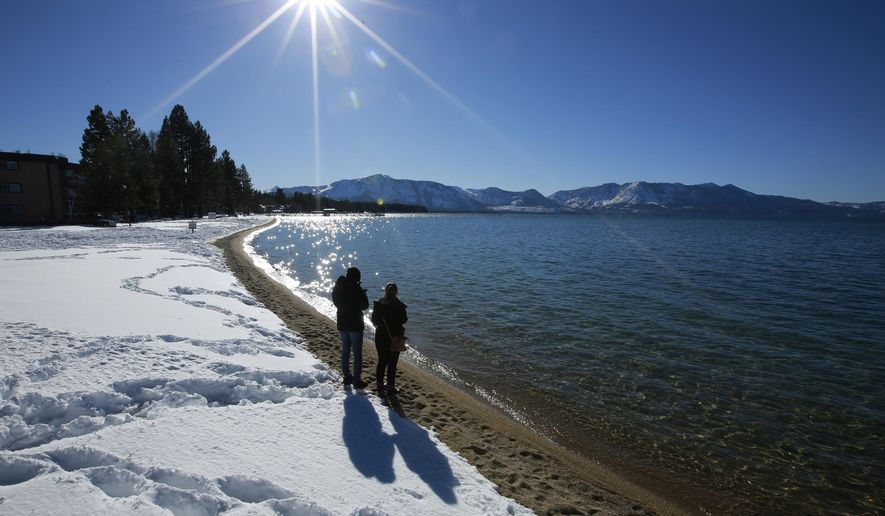RENO, Nev. (AP) - Lake Tahoe is the fullest it’s been in nearly two decades.
Officials say the alpine lake on the California-Nevada line is approaching the legal limit after snowmelt from a stormy winter left enough water to potentially last through three summers of drought.
For three weeks, Tahoe has been within an inch (25 millimeters) of its maximum allowed surface elevation of 6,229.1 feet (1,898 meters) above sea level,
It crept to within a half-inch (13 millimeters) earlier this week.
Chad Blanchard, a federal water master in Reno responsible for managing the water, told the Reno Gazette Journal it’s the longest he’s seen the lake stay that high for so long.
“This is a rare year,” he said. “I’ve been doing this for 26 years, and we’ve had big (snow) years, but this one is unique as far as being up within an inch of being full and it’s just hanging there … It’s a product of still having so much snow up there.”
Lake Tahoe, the second-deepest lake in the U.S. at about 1,645 feet (501 meters), typically holds enough water to cover the entire state of California with 14 inches (35 centimeters) of the wet stuff.
Only Oregon’s Crater Lake is deeper.
As winter snow continues to melt from mountain tops and into Tahoe, the rate of summertime surface evaporation is beginning to pick up.
Blanchard says the lake soon will reach a point of equilibrium when snowmelt slows and the rate of evaporation increases. Then, the lake level will begin to drop.
“What it means going forward is a good water supply for three years,” he said.
The legal limit of the lake plays a role in determining if, when and how much water is spilled into the Truckee River at a dam in Tahoe City, California.
The San Jose Mercury News reported the lake level has risen 8 feet (2.5 meters) since the beginning of 2016, when it hit a low point during California’s five-year drought.
This summer will be the third time in the past three years that the lake has come up to the edge of its legal limit. That previously happened in 1998, 1999 and 2000.
___
Information from: Reno Gazette-Journal, http://www.rgj.com




Please read our comment policy before commenting.